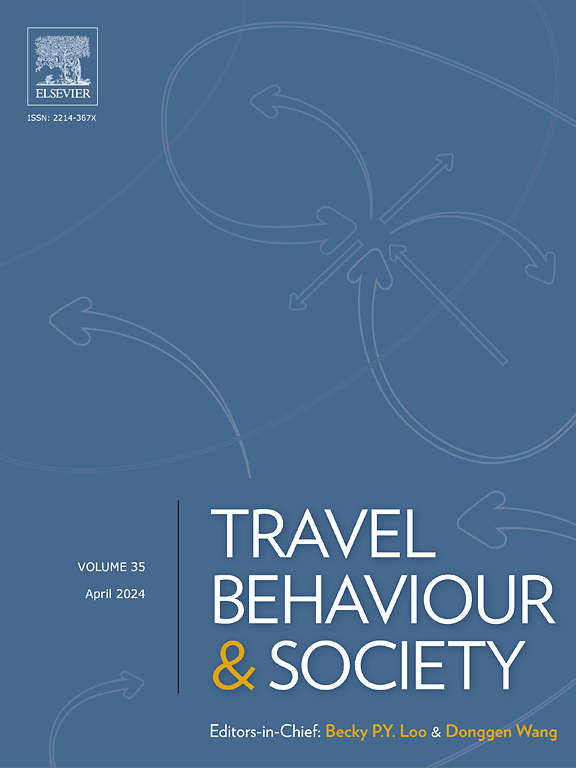Decoding household multi-car transactions: A Bayesian belief network approach
IF 5.7
2区 工程技术
Q1 TRANSPORTATION
引用次数: 0
Abstract
Cars exert a substantial influence on people’s daily lives, shaping travel behaviors while playing a pivotal role in the sustainability of our living environment. As economies advance and more women join the workforce, households owning multiple cars have become increasingly common. It is believed that the recent advances in mobility tools such as shared cars and bikes as well as Mobility-as-a-Service have the potential to diminish the need for having a second car in the households in which more than one member possesses a driving license. Despite this, the real-world data suggest that buying a second car in households with more than one driving license is still an attractive solution. Understanding the determinants of buying an additional car is vital in devising policies aiming to lessen such interest and the accompanying externalities. This study develops a Bayesian belief network (BBN) model that encompasses households’ socio-demographics and their life events as well as built environment information to capture their interdependences in unraveling the influential factors of household multi-car transaction decisions. The population microdata from the Netherlands CBS (Census Bureau of Statistics) are utilized to train and test the BBN model. This study uncovers concurrent and lagged effects of life events on car transactions as well as the interaction effects between the household head and the partner’s car transaction decisions. The simulation results indicate that the proposed BBN model achieves a high prediction accuracy of over 83.6% for all transaction decisions.
解码家庭多车交易:贝叶斯信念网络方法
汽车对人们的日常生活产生了重大影响,塑造了人们的出行行为,同时在我们生活环境的可持续性方面发挥着关键作用。随着经济的发展和越来越多的女性加入劳动力大军,拥有多辆汽车的家庭变得越来越普遍。据信,最近在共享汽车和自行车以及移动即服务等移动工具方面取得的进展有可能减少在一个多名成员拥有驾驶执照的家庭中拥有第二辆汽车的需求。尽管如此,现实世界的数据表明,拥有多张驾照的家庭购买第二辆车仍然是一个有吸引力的解决方案。了解多买一辆车的决定因素,对于制定旨在降低这种兴趣和伴随的外部性的政策至关重要。本研究开发了一个贝叶斯信念网络(BBN)模型,该模型包含家庭的社会人口统计学和他们的生活事件以及建筑环境信息,以捕捉他们在揭示家庭多车交易决策的影响因素中的相互依赖性。利用荷兰人口普查局(CBS)的人口微观数据来训练和测试BBN模型。本研究揭示了生活事件对汽车交易的并发效应和滞后效应,以及户主与伴侣的汽车交易决策之间的交互效应。仿真结果表明,所提出的BBN模型对所有交易决策的预测准确率达到83.6%以上。
本文章由计算机程序翻译,如有差异,请以英文原文为准。
求助全文
约1分钟内获得全文
求助全文
来源期刊

Travel Behaviour and Society
TRANSPORTATION-
CiteScore
9.80
自引率
7.70%
发文量
109
期刊介绍:
Travel Behaviour and Society is an interdisciplinary journal publishing high-quality original papers which report leading edge research in theories, methodologies and applications concerning transportation issues and challenges which involve the social and spatial dimensions. In particular, it provides a discussion forum for major research in travel behaviour, transportation infrastructure, transportation and environmental issues, mobility and social sustainability, transportation geographic information systems (TGIS), transportation and quality of life, transportation data collection and analysis, etc.
 求助内容:
求助内容: 应助结果提醒方式:
应助结果提醒方式:


